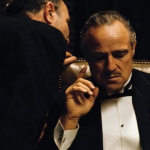🎬 Ip Man 5 (2025)

🎬 Ip Man 5 (2025) – The Ultimate Legacy of Kung Fu and Brotherhood
Starring: Donnie Yen, Jackie Chan, Michelle Yeoh, Tony Leung, Donnie Yen (returning as Ip Man)
Directed by: Wilson Yip
Genre: Martial Arts, Action, Drama
Runtime: Approx. 130 minutes
Release Year: 2025
The legend returns. Ip Man 5 marks the triumphant continuation of one of the most beloved martial arts franchises in cinematic history, bringing back the incomparable Donnie Yen as the venerable Wing Chun master, Ip Man. But this time, the stakes are higher, the action more explosive, and the emotions run deeper — all enhanced by the unexpected but perfectly matched inclusion of Jackie Chan, who plays an opera master turned martial arts warrior. Together, they craft a powerful story about legacy, honor, and the unbreakable bonds forged through discipline and shared struggle.
Setting the Stage: Hong Kong, 1970s — A Time of Turmoil and Change
The story of Ip Man 5 shifts from the traditional period settings of the earlier films into the bustling and chaotic Hong Kong of the 1970s. This era, marked by rapid modernization, political unrest, and underground turmoil, offers a gritty backdrop unlike anything the previous installments have explored. The film brilliantly captures this volatile atmosphere — from the smoky fight clubs hidden in narrow alleyways to the high society balls where tradition clashes with new social orders.
Master Ip finds himself in a city where the essence of martial arts is at risk of being corrupted by greed, violence, and political interference. The underground fight clubs that have sprouted like wildfire have begun to warp the discipline, turning martial arts from a noble tradition into a merciless spectacle for money and power.
The Return of Donnie Yen: Master Ip Man’s Quiet Strength
Donnie Yen returns to the role that arguably defined a new era of martial arts cinema. His portrayal of Ip Man is nuanced and multi-dimensional: no longer just a stoic master, but a man grappling with the pressures of preserving tradition in a fast-changing world.
In this installment, Ip Man is older, wiser, but no less formidable. Yen’s physical performance is as impressive as ever — blending graceful Wing Chun techniques with raw power and precision. His movements seem to embody a philosophy as much as a fighting style — calm, efficient, and deeply rooted in respect and honor.
Yen’s presence grounds the film emotionally. We see Ip Man wrestling with his legacy — how to protect and pass down a martial art that is being diluted and commercialized. His interactions with the younger generation highlight his role not just as a fighter, but as a mentor, a father figure, and a beacon of hope.
Jackie Chan’s Debut as the Opera Master Turned Warrior
The addition of Jackie Chan to the Ip Man universe is nothing short of inspired. Known globally for his unique blend of action, comedy, and heart, Chan takes on a role that complements Yen’s serious and disciplined Ip Man perfectly.
Chan plays Liu Shan, a former Chinese opera master with a mysterious past who has been living in quiet exile. His character is introduced with a sense of intrigue — a man who once fought with honor but has since withdrawn from the martial world.
As the underground fight clubs’ violence escalates, Liu Shan is reluctantly drawn back into the fray. His fighting style, influenced by traditional opera movements and acrobatics, provides a breathtaking contrast to Ip Man’s Wing Chun — making their partnership dynamic and visually stunning.
Jackie Chan’s trademark charisma and physicality shine throughout the film, balancing intense fight sequences with moments of levity and humanity. His relationship with Ip Man evolves from rivalry to mutual respect and brotherhood, underscoring one of the film’s core themes.
Brotherhood and Legacy: Passing the Torch
At its heart, Ip Man 5 is about legacy — not just the physical techniques of Wing Chun, but the values it represents: discipline, respect, and unity. The film dedicates much time to the bond formed between Ip Man and Liu Shan as they train the next generation of martial artists.
These younger fighters, eager but raw, come from various walks of life. Some are street kids looking for purpose, others from traditional martial arts schools facing extinction in the modern world. Ip Man and Liu Shan become mentors who not only teach fighting techniques but also the philosophy and ethics that give martial arts meaning.
The film explores the tensions between old and new — the battle to keep tradition alive while adapting to a changing society. It also shows how martial arts can bring people together across cultural and social divides.
Intense and Visceral Fight Sequences
Fans of the Ip Man series know that the fight choreography is always a highlight, and Ip Man 5 raises the bar yet again. The action sequences are a thrilling blend of technical mastery and cinematic spectacle.
Choreographer Yuen Woo-ping returns, crafting fights that are at once authentic, emotionally charged, and visually innovative. The underground fight scenes are gritty and brutal, emphasizing the raw stakes involved. Meanwhile, the training montages and duels between Ip Man and Liu Shan showcase a beautiful contrast of styles — Wing Chun’s efficiency and the fluid, theatrical movements of Chinese opera martial arts.
One standout sequence is a climactic showdown in an abandoned dockyard, where Ip Man and Liu Shan team up against a gang of ruthless enforcers. The choreography here is tight and fast-paced, highlighting the characters’ skills and trust in one another. The use of the environment — crates, ropes, and shadows — adds layers of depth to the fight.
Political Intrigue and Social Commentary
Beyond the martial arts action, Ip Man 5 delves into political intrigue, reflecting the complex social realities of 1970s Hong Kong. The underground fight clubs are not just criminal enterprises — they are also tools for political factions vying for influence.
Ip Man and Liu Shan find themselves caught in this web, forced to navigate alliances and betrayals. The film explores themes of corruption, power, and resistance, making it more than just a martial arts spectacle.
This political backdrop adds tension and stakes to the personal battles, highlighting the courage required to uphold honor in a corrupt world. It also provides a commentary on how cultural traditions can be exploited or preserved in times of upheaval.
Emotional Depth and Character Development
What sets Ip Man 5 apart is its balance of action and heart. The film spends time developing its characters, making their struggles relatable and poignant.
Ip Man’s internal conflict is central — the pain of seeing his beloved art being cheapened, the responsibility he feels to protect it, and the sacrifices he must make for the greater good. Donnie Yen conveys this with subtle expressions and moments of quiet reflection.
Jackie Chan’s Liu Shan is a layered character, haunted by past failures yet driven by a renewed sense of purpose. His journey from reluctant fighter to mentor adds emotional weight to the story.
Supporting characters, including Ip Man’s family and the young students, enrich the narrative, bringing themes of family, hope, and perseverance.
Stunning Cinematography and Production Design
The film’s visual style perfectly complements its story. The cinematography captures the contrast between the gritty streets and the elegance of traditional martial arts.
Locations range from shadowy alleyways and smoky fight clubs to vibrant opera houses and serene training halls. The color palette shifts accordingly — muted, earthy tones in scenes of conflict, warmer, richer hues in moments of camaraderie and tradition.
Period-accurate costumes and props immerse viewers in 1970s Hong Kong, with meticulous attention to detail. The production design enhances the film’s themes by showing a world in flux, where old customs clash with modern pressures.
Music and Sound Design
The soundtrack blends traditional Chinese instruments with modern orchestration, reflecting the film’s fusion of old and new.
The music intensifies during fight scenes, adding emotional resonance without overpowering the choreography. Subtle sound design — the rustle of robes, the snap of a punch — heightens realism.
A memorable theme underscores the bond between Ip Man and Liu Shan, evoking feelings of brotherhood and shared destiny.
Cultural Significance and Impact
Ip Man 5 is more than a martial arts movie — it is a cultural tribute. The film celebrates Chinese martial arts not only as physical combat but as a philosophy rooted in respect, discipline, and community.
By exploring the challenges of preserving tradition in a changing world, it resonates with audiences worldwide, especially those who value cultural heritage.
Donnie Yen and Jackie Chan’s performances bridge generations, drawing longtime fans and new viewers alike. Their chemistry and skill remind us why martial arts cinema remains powerful and relevant.
Conclusion: A Must-Watch Masterpiece for Fans and Newcomers
Ip Man 5 delivers everything that fans have come to expect — breathtaking fight scenes, compelling characters, and a story that honors the past while looking to the future.
Donnie Yen once again embodies the spirit of Ip Man with grace and strength. Jackie Chan’s electrifying presence adds a fresh dimension that elevates the film beyond a typical sequel.
The movie’s blend of action, drama, and political intrigue creates a richly textured experience. Whether you are a martial arts aficionado or a newcomer, Ip Man 5 offers a powerful journey of courage, honor, and brotherhood.
Highlights:
-
Donnie Yen’s masterful return as Ip Man, blending calm wisdom with fierce combat skills.
-
Jackie Chan’s dynamic debut as Liu Shan, the opera master turned warrior, bringing acrobatic and theatrical fighting style.
-
Gritty, realistic fight choreography mixed with cinematic flair.
-
A rich 1970s Hong Kong setting filled with social and political tensions.
-
Themes of legacy, mentorship, and preserving culture in a changing world.
-
Emotional depth and well-rounded characters beyond the action.
-
Stunning cinematography and authentic period design.
-
A powerful soundtrack that complements the story’s tone.











